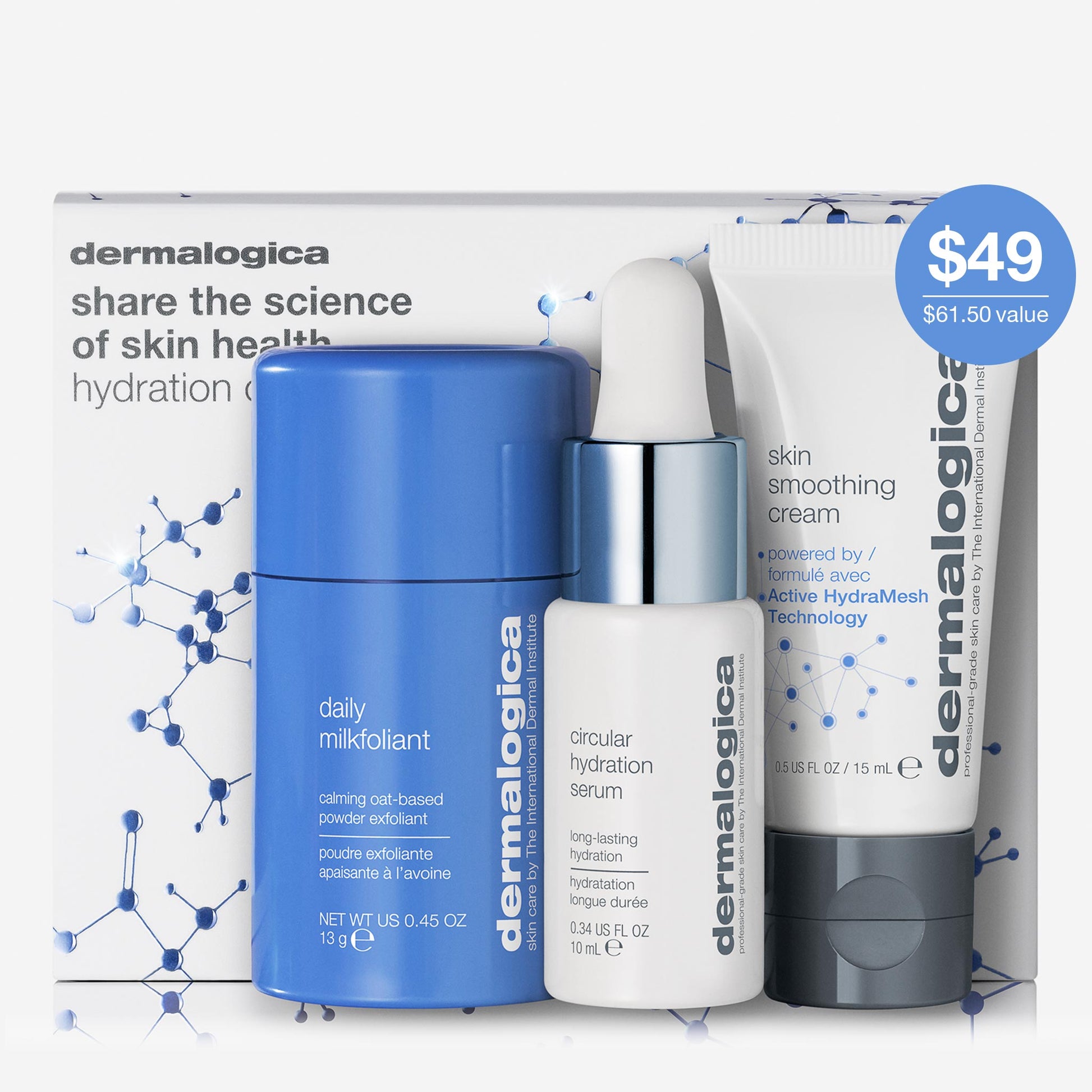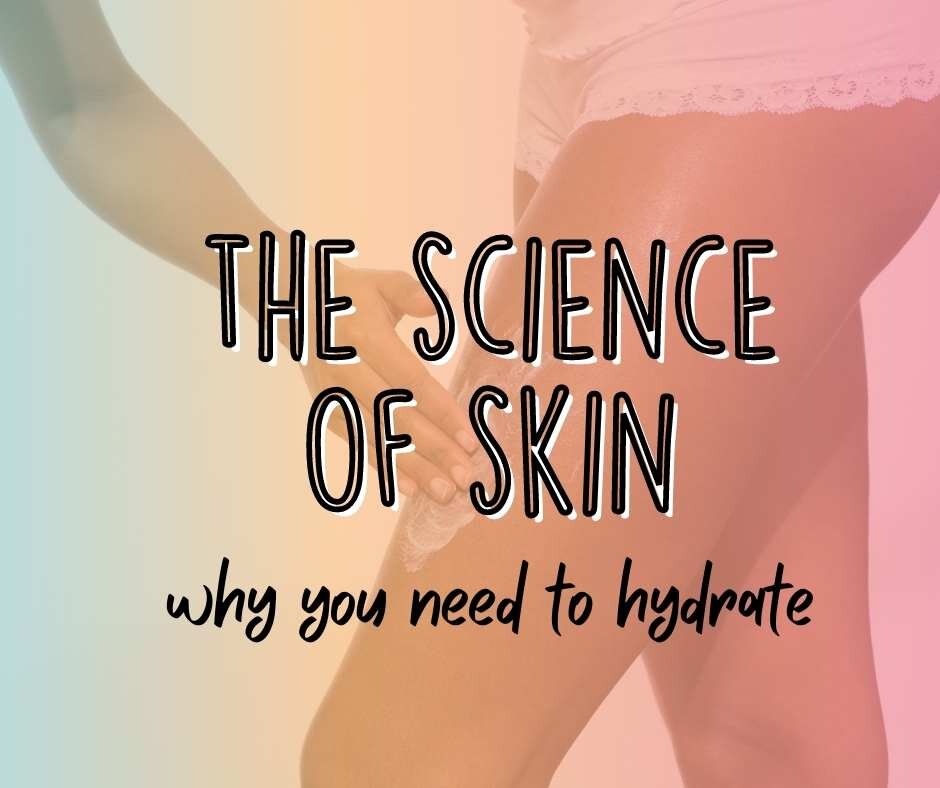Our skin also relies on water to function properly. Hydration plays a crucial role in maintaining the elasticity of the skin, reducing the appearance of wrinkles and fine lines.
Furthermore, well-hydrated skin is better equipped to protect itself from sun damage and control oil production, preventing breakouts. In essence, hydrating the skin goes beyond moisturizing; it involves replenishing its water content to keep it glowing and healthy. Without adequate hydration, the skin may appear dull, feel tight, and become more susceptible to various skin issues.
Therefore, it is crucial to prioritize hydration as a vital part of your skincare routine.
Table of Contents
The Importance Of Hydration For Skin
Hydration is crucial for maintaining skin elasticity and protecting it from sun damage and breakouts. The skin’s hydration depends on hyaluronic acid-bound water in the dermis and the stratum granulosum. Dehydrated skin can lead to increased water loss, resulting in dry, weak barrier quality.
Adequate moisture helps in repairing and rejuvenating skin cells, keeping the skin youthful.
Hydrating your skin is not just a luxury, it’s a necessity. Proper hydration offers a host of benefits for your skin, including:
- Improved Elasticity: Proper hydration helps maintain the elasticity of your skin, reducing the appearance of wrinkles and fine lines.
- Sun Protection: Dehydrated skin is more susceptible to sunburn and other forms of UV damage. Hydrating your skin provides an extra layer of protection against the sun’s harmful rays.
- Oil Control: Hydration can help regulate oil production in your skin, preventing excessive oiliness and reducing the likelihood of breakouts.
The science behind skin hydration is fascinating. The dermis and epidermis play vital roles in maintaining skin hydration. Hyaluronic acid (HA) binds and holds water in the dermis, contributing to skin hydration. Additionally, the stratum granulosum in the epidermis is crucial for maintaining hydration. Loss of the stratum granulosum, such as in burn patients, can lead to severe dehydration.
The epidermis serves as a barrier to prevent water loss and maintain skin hydration. When this barrier is compromised, water loss increases, resulting in dry and dehydrated skin. Dry skin tends to have a weaker barrier compared to normal skin. Therefore, maintaining proper hydration is essential to optimize skin health and prevent dehydration.
Moisture is vital for healthy skin cells. Areas of the skin that shed cells rapidly, such as the face, constantly require moisture for repair. Moisturizing not only nourishes the skin but also stimulates blood circulation and promotes new cell generation, ensuring that younger, healthier skin cells rise to the surface.

Credit: www.dermalogica.com
Consequences Of Dehydrated Skin
Dehydrated skin can lead to various consequences, including increased appearance of wrinkles, sensitivity to UV damage, and a higher likelihood of breakouts. Proper hydration is essential for maintaining skin elasticity and protecting it from the harmful effects of the sun.
Effects On Skin Barrier
Dehydrated skin can have a detrimental impact on your skin barrier. The skin barrier is responsible for keeping moisture in and harmful substances out. When your skin becomes dehydrated, it weakens the barrier, making it more susceptible to damage. This can lead to a variety of issues, such as increased sensitivity, redness, and irritation.
Furthermore, a compromised skin barrier can contribute to increased water loss, leading to even more dehydration. This creates a vicious cycle that can be difficult to break. It’s essential to prioritize hydration to maintain a strong and healthy skin barrier.
Rapid Cell Turnover
In addition to affecting the skin barrier, dehydration can also impact the rate of cell turnover. The skin naturally sheds dead cells, allowing for the growth of new, fresh cells. However, when the skin is dehydrated, this process can become imbalanced.
Dehydration can slow down the turnover of cells, preventing the old cells from shedding effectively. This can result in a build-up of dead skin cells, leading to a dull and lackluster complexion. On the other hand, adequate hydration promotes rapid cell turnover, allowing for a more vibrant and youthful appearance.
Taking steps to keep your skin well-hydrated can support the natural process of cell turnover, leading to smoother, healthier skin.
By understanding the consequences of dehydrated skin, you can prioritize hydration as an essential part of your skincare routine. Ensure to incorporate effective moisturizers and hydrating products into your daily regimen to maintain a strong skin barrier and promote rapid cell turnover. Don’t underestimate the power of hydration when it comes to achieving healthy, radiant skin.
The Role Of Moisture For Skin Cells
Hydration plays a crucial role in maintaining the health and vitality of skin cells. Skin cells require ample moisture to function optimally, promoting cell repair and regeneration, as well as stimulating blood circulation. Additionally, moisture acts as a protective barrier, aiding in the prevention of water loss and dryness, which are essential for maintaining healthy skin.

Cell Repair And Regeneration
Proper hydration supports the repair and regeneration of skin cells, allowing for the renewal of damaged or aging cells. Well-hydrated cells are able to effectively replicate and repair damaged tissues, contributing to healthier and more youthful-looking skin.
Blood Circulation Stimulation
The application of moisturizers aids in stimulating blood circulation, promoting an optimal supply of nutrients and oxygen to skin cells. Enhanced blood circulation also facilitates the removal of waste products, contributing to the overall health and vitality of the skin.
Differences Between Moisturizing And Hydrating
Proper hydration improves skin elasticity, reducing the appearance of wrinkles and sun damage. It also helps control oil production and prevents breakouts. Hydration goes beyond moisturizing by adding water to the skin’s moisture barrier, preventing dullness and tightness.
Adding Water Vs. Locking In Moisture
Understanding the difference between moisturizing and hydrating is crucial when it comes to maintaining healthy and youthful skin. While both are important for skin health, they serve different purposes.
Moisturizing primarily focuses on locking in existing moisture in the skin, preventing it from evaporating and leaving the skin dry. This is achieved by using products that contain occlusive ingredients, such as oils and butters, which create a barrier on the skin’s surface. These ingredients seal in moisture and provide a protective layer that helps prevent water loss from the skin.
On the other hand, hydrating involves adding water to the skin to increase its overall moisture content. This is done through the use of products that contain humectant ingredients, such as hyaluronic acid and glycerin. Humectants attract water from the environment and bind it to the skin, enhancing hydration and improving skin elasticity.
Impacts On Skin Appearance
The impacts of moisturizing and hydrating on the skin’s appearance are significant and distinct. Moisturizing not only prevents dryness and flakiness but also helps to smooth out the skin’s texture and improve its overall feel. By creating a protective barrier, moisturizers can minimize the appearance of fine lines and wrinkles, giving the skin a plumper and more youthful appearance.
Hydrating, on the other hand, helps to improve the skin’s moisture levels from within. Adequate hydration can enhance skin elasticity, reducing the visibility of wrinkles and fine lines. It also helps to maintain a healthy skin barrier, preventing moisture loss and protecting against environmental stressors. As a result, hydrated skin appears smoother, more supple, and radiant.
Tips For Effective Skin Hydration
Hydration is essential for maintaining healthy and youthful-looking skin. Proper hydration can improve elasticity, protect the skin from UV damage, and prevent breakouts. To ensure your skin is adequately hydrated, follow these tips:
Hydration Dos
- Drink enough water: Stay hydrated from the inside out by drinking at least 8 glasses of water per day. This will help nourish your skin and keep it looking plump and fresh.
- Use a moisturizer: Apply a hydrating moisturizer daily to lock in moisture and keep your skin supple. Look for moisturizers containing ingredients like hyaluronic acid or glycerin for maximum hydration.
- Protect your skin: Wear sunscreen with at least SPF 30 to shield your skin from harmful UV rays. Sun exposure can lead to dehydration, so it’s crucial to protect your skin when spending time outdoors.
- Eat water-rich foods: Incorporate water-rich foods into your diet, such as cucumbers, watermelon, and oranges. These foods not only hydrate your body but also provide essential vitamins and antioxidants for healthy skin.
- Use a hydrating face mask: Treat your skin to a hydrating face mask once or twice a week. Look for masks containing ingredients like aloe vera or honey, which can replenish moisture and improve skin texture.
Hydration Don’ts
- Don’t overwash your face: Excessive washing can strip away your skin’s natural oils, leading to dryness. Stick to washing your face twice a day using a gentle cleanser to maintain a healthy balance.
- Avoid hot showers: Hot water can dehydrate your skin, so opt for lukewarm showers instead. Also, limit your shower time to prevent further moisture loss.
- Avoid harsh skincare products: Stay away from skincare products that contain alcohol or other drying ingredients. Instead, choose gentle and hydrating products that will nourish your skin.
- Don’t forget to moisturize: Even if you have oily skin, moisturizing is still essential. Look for oil-free or lightweight moisturizers that won’t clog your pores but will provide the necessary hydration.
- Don’t neglect your lips: Your lips need hydration too! Apply a moisturizing lip balm frequently to keep them soft and supple.
Incorporating these tips into your skincare routine will help you achieve and maintain optimal skin hydration. Remember, hydrated skin is healthy skin!

Credit: www.moodysisters.com
Frequently Asked Questions On The Science Of Skin Why You Need To Hydrate
Why Is Hydration So Important For Skin?
Hydration is crucial for skin health. It boosts elasticity, reducing wrinkles, and protects against sun damage. It regulates oil production, minimizing breakouts. Maintaining skin moisture promotes rapid cell renewal and blood circulation, leading to younger-looking, healthier skin.
What Is The Science Of Skin Hydration?
Skin hydration is the science of maintaining moisture in the skin to improve elasticity, protect against UV damage, and prevent breakouts. Hydration relies on water bound to hyaluronic acid and the stratum granulosum. Dehydrated skin is more prone to wrinkles, sunburn, and oiliness.
Hydration is essential for healthy, youthful-looking skin.
What Is The Science Behind Dehydrated Skin?
Dehydrated skin occurs when the skin’s barrier function is compromised, leading to increased water loss and dryness. This can result in a weaker skin barrier and increased susceptibility to damage and breakouts. Hydration is important to maintain elasticity, protect against sun damage, and regulate oil production.
Why Do Skin Cells Need Moisture?
Skin cells need moisture to maintain elasticity, protect against damage, and regulate oil production. Moisturized skin also repairs and renews itself more effectively, leading to a youthful appearance. Additionally, proper hydration can prevent dryness, breakouts, and inflammation, keeping the skin healthy and vibrant.
Conclusion
Skin hydration is vital for maintaining skin health and appearance. Proper hydration can improve skin elasticity, protect against UV damage, and regulate oil production. The science behind skin hydration emphasizes the importance of maintaining water balance within the skin’s layers to prevent dryness and promote cell regeneration.
Incorporating hydration into your skincare routine is crucial for achieving and maintaining healthy, radiant skin.